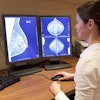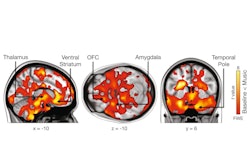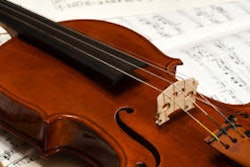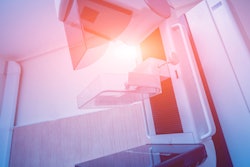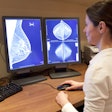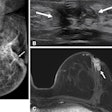Music may help comfort women undergoing mammography exams, according to research published October 31 in Pain Management Nursing.
A team led by Sümeyye Köse, PhD, from the Pendik District Health Directorate in Istanbul, Turkey, found that women who listened to music during their mammography exam reported lower levels of anxiety and pain compared with women who did not.
“Music therapy may be a potentially effective nonpharmacological approach for managing procedure-related discomfort and anxiety,” the Köse team wrote.
The compression of breast tissue during mammography exams can cause pain and anxiety in some women. Prior research suggests that pain experienced from breast compression may play a part in women not undergoing regular breast cancer screening.
Researchers continue to explore ways to increase comfort among women undergoing breast cancer screening or diagnostic mammography. A 2022 study found that music reduces the perception of mammographic pain, while a 2024 analysis found that music reduces anxiety and heart rate outcomes in patients undergoing imaging procedures.
Köse and colleagues conducted a randomized controlled study to investigate how music being played during mammography screening affects pain perception, anxiety level, and overall satisfaction among women.
The study included 74 women who were imaged in early 2024. The team randomly divided the women into a musical intervention group (n = 37) and a control group for standard care (n = 37).
On a scale of 1 to 10, women in the music group reported a fear of pain score of 5.32 while women in the control group had a score of 4.59. The music group showed greater differences between pre-exam and postexam scores for anxiety and pain.
Comparison between music group, control group | ||||
| Control group | Music group | ||
Type of score | Before/during exam | Post exam | Before/during exam | Post exam |
State anxiety inventory | 43.35 | 32.45 | 50.75 | 25.29 |
Process anxiety | 4.62 | 0.38 | 5.49 | 0.03 |
Pain | 3.03 | 0.43 | 1.46 | 0.05 |
| *All results achieved statistical significance. | ||||
Women in the music group also reported overall higher average satisfaction for the procedure compared with women in the control group (9.78 vs. 8.3; p = 0.001).
The team found no significant relationship between anxiety, fear, and satisfaction scores and patient-level factors. These included income level, education, family history of breast cancer, menopause status, smoking, and exercise habits. However, the team reported a weak negative correlation between knowledge about mammography and fear of pain before the exam. (r = -0.244; p = 0.037).
Finally, the researchers reported a positive correlation between fear of pain and preprocedural anxiety scores, with women who have high anxiety pre-exam tending to have a greater fear of pain.
The authors suggested that musical interventions could represent a “low-cost, safe, and feasible complementary intervention” to lessen anxiety and pain. This, in turn, could help improve satisfaction in diagnostic and therapeutic procedures.
“Nevertheless, further large-scale and methodologically rigorous studies are needed to confirm the effectiveness and applicability of this intervention across broader populations and clinical settings,” they wrote.
Read the full study here.




